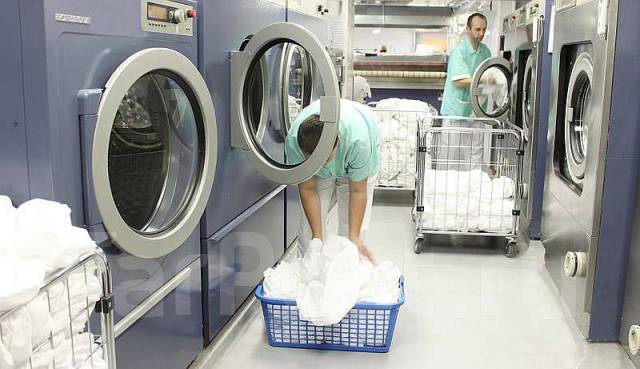Doing laundry at home seems simple, but have you ever wondered how much a single load actually costs? While it may not feel expensive at first, the cumulative cost of water, electricity, detergent, and machine maintenance adds up over time. Understanding these costs can help you manage your household budget and make smarter choices.
The Main Factors That Affect Laundry Costs
Several factors contribute to the cost of doing laundry at home. These include:
- Electricity Usage: Washing machines and dryers consume electricity. On average, a washing machine uses about 0.3–2 kWh per load depending on the type and water temperature. Dryers use significantly more, usually 2–4 kWh per load. High-efficiency machines may cost less per load.
- Water Consumption: Water usage varies depending on your machine. Older top-loading machines can use up to 40 gallons per load, while modern front-loaders may use only 15–25 gallons. In areas with higher water rates, this can make a noticeable difference in your utility bills.
- Detergent and Cleaning Products: The cost of laundry detergent depends on brand and quantity. On average, a load of laundry costs $0.10–$0.25 in detergent. Adding fabric softeners or stain removers increases the total slightly.
- Machine Maintenance: Regular maintenance helps your washing machine last longer, but parts may need replacement over time. Dividing the cost of repairs across your loads can add a few cents per load.
- Energy-Efficient Habits: Using cold water, full loads, and line-drying clothes can reduce costs significantly.
Estimated Cost of a Laundry Load
Considering all factors, the average cost of doing a single load of laundry at home ranges from $1.50 to $3.50, depending on your location, machine efficiency, and water rates. Using a dryer frequently increases costs due to higher electricity consumption.
If you live in an area like Vancouver, WA, you might consider using a Self Laundry Service in Vancouver WA for occasional heavy loads or when time is tight. Self-service laundromats allow you to save on home energy costs while still getting your clothes clean and fresh.
Hidden Costs You Might Not Consider
Apart from the obvious expenses, there are a few hidden costs to consider:
- Wear and Tear on Clothes: Frequent washing can reduce the lifespan of clothing, potentially increasing the cost of replacements.
- Time and Convenience: Doing laundry takes time, which can be considered an indirect cost, especially for busy households.
- Environmental Impact: High water and energy usage not only cost money but also contribute to environmental strain. Using energy-efficient appliances can help reduce these costs.
Tips to Reduce Laundry Costs
- Wash Full Loads: Smaller loads waste energy and water, increasing the cost per garment.
- Use Cold Water: Heating water is one of the largest contributors to laundry costs. Cold water washing can save both energy and money.
- Air Dry When Possible: Line-drying clothes reduces electricity consumption from dryers.
- Choose Efficient Detergents: Concentrated detergents often clean effectively in smaller amounts.
- Maintain Your Machine: Regular cleaning and maintenance prevent breakdowns and improve efficiency.
Why Choosing a Reliable Laundry Partner Helps
Some households may find it easier to rely on professional laundry services for convenience or bulk washing. Fresh Laundromat, for example, is highly regarded in the area for combining quality service with reasonable pricing. Customers report consistently clean laundry, friendly service, and helpful staff. Including trusted third-party services like this can provide a seamless laundry experience when time or efficiency is important.
Comparing Home Laundry vs. Laundromat Costs
When comparing costs, doing laundry at home is generally cheaper per load if you include only water, detergent, and electricity. However, laundromats offer benefits that sometimes outweigh the cost difference:
- High-capacity machines for large items like blankets
- Faster drying and washing cycles
- Less wear and tear on personal machines
Even when factoring in laundromat fees, using services like Fresh Laundromat occasionally may be worthwhile.
Additional Considerations
- Seasonal Changes: Energy rates can vary seasonally, affecting cost per load.
- High-Efficiency Appliances: Investing in an energy-efficient washing machine can save money long-term.
- Eco-Friendly Detergents: These may cost slightly more but reduce environmental impact.
For those living in Vancouver or nearby areas, exploring Self Laundry Service in Vancouver WA can be a practical choice for heavy loads or special garments, giving you convenience without significantly increasing your laundry budget.
Final Thoughts
Understanding the true cost of doing a load of laundry at home helps you make informed decisions about your household budget. By combining energy-efficient practices, smart detergent use, and occasional professional services like Fresh Laundromat, you can maintain clean clothes while keeping costs manageable.
Laundry may seem routine, but careful management ensures it remains affordable, environmentally friendly, and hassle-free. By knowing your options and the factors affecting costs, you can make choices that work best for your lifestyle.

